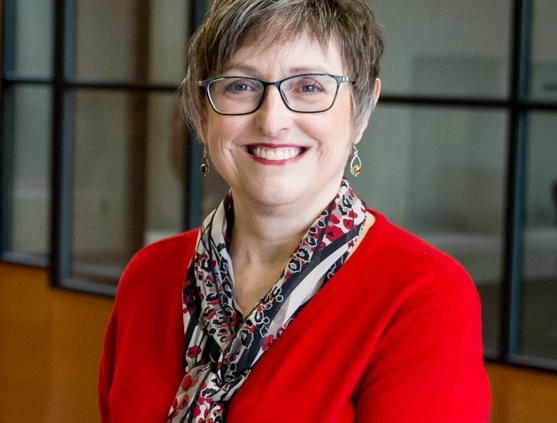Today we kick off a mini-series on education and law. Intermittently, overly the next 8 months or so, we’ll be airing a collection of conversations with scholars affiliated with the Education Law Association. These shows will touch on timely legal and policy issues affecting education.
For our first show in the education and law mini-series, I speak with Julie Mead about her new co-written report with Suzanne Eckes for the National Education Policy Center entitled: How school privatization opens the door for discrimination.
In our conversation, we touch on a range of issues related to voucher programs and charter schools. Julie reminds listeners that the dictionary definition of discrimination is not the same as the legal definition.
Julie Mead is the Associate Dean for Education and Professor in the Department of Educational Leadership and Policy Analysis at the University of Wisconsin at Madison. She is a member of the Education Law Association.
Citation: Mead, Julie, interview with Will Brehm, FreshEd, 149, podcast audio, April 8, 2019.
Transcript, Translation, and Resources:
Will Brehm 1:49
Julie Mead, welcome to FreshEd.
Julie Mead 1:50
Thank you for having me. I’m glad to be here.
Will Brehm 1:52
So, I’d like to start by just talking a little bit about the way in which federal law in the USA protects against discrimination in school. So, first off, what types of discrimination can even exist in schools?
Julie Mead 2:06
Well, schools, of course, are places where human beings are. So, any kind of discrimination that you can imagine. So, discrimination on the basis of race, on the basis of sex, basis of religion, basis of gender or gender identity, basis of disability -all of those different kinds of discrimination can and have and we have a historical backdrop for -in terms of when they have happened in schools.
Will Brehm 2:39
And what have the courts said or ruled about discrimination specifically in schools?
Julie Mead 2:46
Well, I think that the best way to think about that is actually to talk first about the Constitution, which may sound a little old-fashioned, perhaps, but the Constitution has in it -one of the provisions of course is the 14th amendment. And in the 14th amendment, there’s the Equal Protection Clause. And so, it’s really a statement of our collective value that people should be -if they are similarly situated- treated the same. And that no person should be singled out for differential treatment based on some status characteristic. And that status characteristic, again, could be race, sex, class, all of those different status characteristics. And so, the 14th amendment was the vehicle that was first used when plaintiffs sued in order to get equal protection from the government. And so, the most famous case, of course, is Brown v. the Board of Education. It wasn’t the first case that litigated the issue, but it is the case that is, in fact, the most important, arguably, and probably the best well known. And so, the issue in Brown v. the Board of Education, as most people know, was whether or not segregated schools were permissible under the Constitution -and the actual provision was the Equal Protection Clause of the 14th amendment. So, is it permissible for a state to sort children on the basis of race when they are putting their public school system together? And of course, the Supreme Court determined that: No, there is not an adequate justification for that. One of the things that I always talk to my students about is that discrimination has what you might call a “dictionary definition”, what people think about anytime I’m treating somebody differently, they may call that discrimination. But there’s also a “legal definition”. And so, the legal definition of discrimination when we’re talking about the 14th amendment is when the government cannot justify the difference between those people, right. And so here we’re talking about the government classifying people, sorting people on the basis of some status characteristic. And it’s discriminatory when they cannot justify that difference. Now, if they can justify it -if they can meet the legal justification that’s required- then by definition, that is not discriminatory. That’s a difference but it’s not discriminatory. So that’s one thing.
Will Brehm 5:22
So, what would be an example of that?
Julie Mead 5:23
Getting a driver’s license. So, in my state, the state of Wisconsin sorts people into two categories. The first category are those individuals who are not yet 16. And the second category is those people who are 16 or older. They’re treated differently. The folks who are not yet 16 are not able to get a driver’s license no matter how well they know the rules of the road, or how safely they’re able to operate a motor vehicle. Those who are over 16 have to be able to demonstrate that they do know the rules of the road, and that they can safely operate a motor vehicle. So, there’s a difference in treatment there but we don’t call that discriminatory, because it’s a justifiable difference. Why? Because the goal, of course, is to make sure that our streets and highways are safe for everybody. And in order for them to be safe we make sure that folks understand the rules of the road and that they are physically able and have sufficient judgment to operate a motor vehicle safely. And if you had unlimited time and unlimited resources as a government, you might say whoever can do that doesn’t matter who you are. Whoever you can do that -demonstrate that you know the rules then safely operate a motor vehicle- gets a driver’s license. And if that were the case and somebody did a study, we’d probably see that there was at least a correlation between age and being able to do those things. We don’t have a system with unlimited resources and time and so the government has sorted us into those two categories, but they can justify that based on their goal. So, the means that they used (sorting us) is rationally related to the goal (having safe highways) and therefore, because that is related -the terms of the law “rationally related”- that is by definition not discriminatory. It’s a difference. People are treated differently and someone who’s 14 or 15 might chafe at that difference but that’s not discriminatory.
Will Brehm 7:30
And so then in education, in Brown v. the Board of Education, the means of segregating children by race. The government was not able to justify the different way they were treating people -that would be the legal way of understanding discrimination?
Julie Mead 7:47
Precisely. So, when the category and when the government is sorting us by race, the courts -the judicial branch, the Supreme Court- requires that the connection between the ends and the mean -so the goal that we’re after and the means being the sort by racial category- has to be a very tight fit. An ends means fit has to be very tight. And there they used a test called strict scrutiny. And what that requires is that the means are necessary and narrowly tailored to the ends which must be a compelling state interest. So, it raises the stakes in order for the state to justify anytime they want to sort us by race.
Will Brehm 8:33
So, in terms of discrimination, are there any other laws beyond the Constitution that are protecting people against discrimination -particularly students, and anyone in schools?
Julie Mead 9:05
Absolutely. We have several federal statutes that protect against discrimination. For example, Title VI of the Civil Rights Act protects against discrimination on the basis of race, color, or national origin by any entity that receives federal funds. Likewise, Title VII protects all employees from discrimination on the basis of race, color, religion, sex, or national origin. We’ve got Title IX of the Education Amendments of 1972 and it applies to, again, entities that receive federal dollars, and protects students and staff in educational entities. So, both K-12 schools all the way up to colleges and universities. And it protects students and staff from discrimination on the basis of sex. You’ve got the section 504 of the Rehabilitation Act that protects against the discrimination on the basis of disability. The Americans with Disabilities Act, that also protects against discrimination on the basis of disability. The Individuals with Disabilities Education Act, which provides funds to states to make sure that they have non-discriminatory practices. And finally, the Equal Educational Opportunity Act, which requires states and local school districts to ensure that what they’re doing is offered on an equal basis without regard to race, color, sex, or national origin.
Will Brehm 10:07
So, it seems like there’s a lot of different statutes -the 14th amendment. So, in a sense there is a rich legal foundation to protect against discrimination in schools. I guess one of the things about the American system is that there’s so many different types of schools. There are public schools but then there’s also religious schools, private schools. And you know, I remember growing up in America and knowing people that were going to say an all-girls or an all-boys private school. And so that seems to be a sorting of some sort. So how do these laws impact religious and private schools in America?
Julie Mead 10:43
They do impact them, but differently. And one of the reasons that it’s differently is because in some cases they don’t apply, at all. And in other cases, they applied differently because of the way that the laws were written. So, every statute, unlike the Constitution, is changeable and is written by the legislators that created it. So, Congress decided -and in that way, Congress, if you will, defines what is discrimination in those statutes. So, it defines the scope of the law, it defines the exceptions to the law. And so, if we back up to the Constitution, the 14th amendment only applies if there is a state actor or a governmental actor. So, a private school is not run by the state, is not run by a governmental actors. So, it may sound funny to say, but the constitution doesn’t apply. So again, they can try to live out the value of the 14th amendment but they are actually not bound by it because they are not related to the government. The other laws, some of them, require that there be a recipient of federal funds. So, in that case, you have to check first to see whether or not the private school is, in fact, receiving federal funds. If they are, then those laws apply, like Title VI, like Title IX, like Section 504 of the rehabilitation Act -those all have that federal funding trigger, if you will. If the private school is not receiving any federal funds, then those laws don’t apply to them. And then there are some other laws like the Americans with Disabilities Act, or Title VII of the Civil Rights Act, which would apply to private schools, but would apply differently than they do to public schools because of the way that they’re written. And in some cases, those laws have explicit exceptions for religious entities so that they don’t apply to religious entities or they apply completely differently to those entities.
Will Brehm 12:48
So, what would be an example of that inside of a school, for instance?
Julie Mead 12:52
Okay, let’s take kids with disabilities. So, kids with disabilities in a public school are entitled to what we term as a free appropriate public education, or a FAPE. So, they’re entitled to a free appropriate public education. And the public school must provide special education and related services if the child needs it. So, if the child has a disability, and is evaluated and found to have that disability, they have to describe that students needs and then they have to provide whatever is necessary for them to meet that baseline floor of opportunity that we call a free appropriate public education. A private school, under the Americans with Disabilities Act may not simply outright say, “Nobody can come here”. So, they can’t discriminate in that way. But if a child with a disability is in a private school, that is not a recipient of federal funds, that private school is only obligated to provide reasonable accommodations or modification to their existing programs that they have right now. And so, if they don’t have any special education expertise on their staff, they don’t have to add it. A public school would have to add it. A private school would not. And the private school then could say to that parent, “I’m sorry, we don’t have the services your child needs, your child will have to withdraw.”
Will Brehm 14:19
And that’s not discrimination by the law?
Julie Mead 14:21
Exactly. Exactly. That’s not discriminatory. Because the law says that it’s not, the law said that for those schools, they only have to make those reasonable accommodations to existing programs. A very different standard than public schools are held to.
Will Brehm 14:40
Right. So, the law applies differently, depending on which entity we are looking at public, private, religious. I’d like to just sort of make it maybe a little bit more complex by adding in the issues of vouchers and charter schools. So, these are receiving public funds, but privately operated. So, you know, how does the law even begin to apply to these entities?
Julie Mead 15:05
Well, let’s separate them first. And since we started by talking about private schools and religious schools, let’s start with voucher programs, because it’s a bit cleaner, to be honest. Because those schools are -first they have to elect to participate in a state’s voucher program, if the state has one. The state cannot compel the private school to participate, the private school has to say, “Yes, I want to participate”. Once they decide to participate, then they have to comply with whatever rules their state legislature has enacted that go along with that voucher program. And if the state isn’t holding them to some different standard than they would have been held to without belonging to the voucher program then they don’t have to do anything different. The laws are no different. So, unless the state legislature has said, “As a condition of taking these public funds, you have now some new rules you have to comply with”, then -you know that’s something that the state legislature could do, they could do that. But if they haven’t done that- then the private school would have no more obligations participating in a voucher program than they would if they didn’t. So, they can take the public money, but they’re not held to any different standards. Charter schools are a different kind of public school. So, a charter school -and again, charter schools vary from state to state to state because they are creatures of the state legislators that created them. So, what is a charter school in Wisconsin is not the same as a charter school in Michigan, or Arizona, or California, for example. And the charter school is created by a performance contract between a charter school authorizer and whoever wants to operate the charter school. Now, those who authorized in most states are public entities. So, they may be a school district, they may be a state board of education, perhaps a special charter school board that’s been created by state statute, they may be a state university. Some states do permit private entities to charter schools -a charity for example, or a nonprofit- but that depends on the state that you’re in. The school itself though, at least under federal law, is considered a public school if they want to participate in the charter schools. It’s under the Every Student Succeeds Act, but there’s a charter schools program, and that federal charter schools program requires that they be public. So, they are a special kind of public school, no matter who operates them. So even if the charter itself is given to some private group -not to another public group but the operator is a private organization of some sort- the school they’re operating as a public school. And so, in that way, although there have been a few arguments about it, in that way, the constitution applies as do those other laws. And certainly, charter schools are the recipients of federal funds under a whole host of federal funding statutes and so all of those non-discrimination laws that only apply if the recipient of federal funds would apply to charter schools, because they are recipients.
Will Brehm 18:34
So, what would all of this mean in terms of discrimination law? Like are there any examples where issues of discrimination have played out inside charter schools or inside private schools that accept voucher students? You know, how does the discrimination law play out?
Julie Mead 18:51
Well, one of the ways -if we go back to my earlier example with kids with disabilities- is that voucher schools aren’t serving kids with disabilities as a general rule. Now some do but it’s a difference between doing it as a matter of discretion -in other words they have elected to do it- versus being mandated to do it. So even when those schools serve kids with disabilities, they tend to be kids with milder disabilities, if they’re serving them at all. Another example would be children who need special instruction in order to learn English. So, kids whose first language is not English. Those kids have to be offered language learning services in a public school, but a private school – even if that private school participates in the voucher program – would not have to do that unless the state were to make that a condition of taking the voucher funds. So far, that has not happened, but it could. In charter schools, even though the non-discrimination laws apply we have seeing fewer kids with special learning needs in those schools. And there’s been a lot of concern about that both from the government accounting office, the GAO, and there’s been concerned about that kind of just writ large. How do we make sure that these special kinds of public schools, in fact, do serve the entire public? I should mention, there’s one other issue that has come up in voucher programs that’s a particular concern and that’s related to some religions who have tenets of their religions around homosexuality, or gender identity, transgenderism, and so forth. And in those situations, we do have a number of reports of private schools participating in voucher programs who don’t take LGBTQ kids and who may not even take straight kids if they come from a family where their parents are LGBTQ. And unless the voucher program, the state statute says, “No, no, no, you can’t do that and take the voucher money”, then, again, there’s no law that says they can’t do that.
Will Brehm 21:16
I mean, it seems like that sort of discrimination in the sort of “dictionary definition” of the term, not the “legal definition” of the term. It seems like that’s such a big issue almost in parallel to the issue that Brown v. the Board of Education was trying to resolve so many years ago with race and separating people by race. I mean, this issue of gender identity and gender orientation, it seems like this is a big issue. And so, are you saying that really it has to come before the Supreme Court? Or can states actually change the laws? How can that issue of discrimination sort of be resolved?
Julie Mead 21:59
Certainly, I think states can take action and in fact, in the report, we talk about some actions that states can take. And one of the things that my co-author, Suzanne Eckes, and I argue is that, in fact, state legislature should be much more active in making non-discrimination a condition of accepting those public funds and they can they can do that. The issue around who you can say no to and I think it’s interesting that you brought up race at the time of segregation or just post-Brown when there was a lot of resistance to desegregation. At that time, two parallels that I want to point out: first, interestingly enough, the very first kinds of voucher programs happened as a way to resist desegregation. So, there are some places where a public school district said, “Okay, we’ll just close all our public schools, and we’ll give everybody a voucher”, knowing that only private schools only would going to take white kids. And so there, you know, we ended up with segregation anyway.
Will Brehm 23:13
So that’s how vouchers started?
Julie Mead 23:14
That is, yeah. Well, I should back up and say there were some programs in rural states, like rural Maine, where they had what’s called a “Town Tuitioning Program” where they didn’t have, literally, enough kids, they have a high school, for example. And so, they would give a voucher to go to a neighboring school district or a non-religious school because they didn’t have enough kids to have their own high school. So other than that, the first foray into vouchers was, in fact, to resist Brown v. the Board of Education. The second parallel that I think you can draw, that we again, point out in the report is that a number of religious entities resisted desegregation on religious grounds. Where they said that mixing of the races was in fact a violation of their religious tenets. And eventually, the Supreme Court said that that’s simply not permissible if you’re going to participate in a public benefit. And then, over time of course, we defined discrimination as saying, “No, you can’t do that. If you’re holding yourself out offering a public accommodation, or a public service, you can’t do that”. And one of the things that we’re arguing is that the time may be ripe to have a similar kind of prohibition against private entities that do the same thing. Now, again, we’ve had, you know, a recent Supreme Court case, if you think about the case around baking a cake, where they said it wasn’t necessary but whether or not that happens at the federal level, a state, as a condition of taking voucher funds, could make that a condition, saying, “If you’re going to take our voucher money, you can’t do that”. Now, that may mean that some religious schools would have to choose between participating in it or taking the money, but they could make that a condition of taking those public funds.
Will Brehm 25:06
Are there any states that are currently going down that road?
Julie Mead 25:09
So, we cite in the paper an early or study that Suzanne and I did that looked at all of the voucher statutes and what we were unfortunately able to conclude was that no state uniformly made non-discrimination a condition of participating in their programs. You have some states, though, that have adopted some provisions that are fairly close. So, I’ll use Wisconsin, we’re really the oldest modern voucher program with the Milwaukee Parental Choice Program that started in 1990. And in the Milwaukee Parental Choice Program, the state legislature did two things. One, they said that the private school that participates in the voucher program had to accept anybody who applied regardless of religion, regardless of anything else. They had to any anyone who applied, as long as they had space of course. And if they had more applicants than they had space, then the law requires that they use some kind of random selection procedure so that they can’t privilege somebody over somebody else based on a status characteristic. They have to have some random selection. The other thing that Wisconsin did is it said that even if it’s a religious school, any student enrolled there by means of a voucher cannot be compelled to participate in a religious activity. Now, you might say, well, why would somebody enroll in religious school and not participate in a religious activity? That’s another question. But they couldn’t be compelled to do so. And so, the combination of those two things provides a kind of a de facto prohibition against discrimination on the basis of religion.
Will Brehm 26:51
What about at the federal level? I mean, with Brett Kavanaugh being appointed to the Supreme Court, are you optimistic that issues of discrimination in school could come before the court and actually produce a ruling that would make the legal definition of discrimination match a little bit more closely the dictionary definition of discrimination?
Julie Mead 27:33
I’ve studied school law a long time and one thing I’ve learned is that it’s not a good idea to make any predictions about what the Supreme Court’s going to do and my track record on predictions is not very good either. So, I think I’m going to punt on that one. I do think that it’s important that we think about these things as policymakers at all levels in order to come as close to realizing those values that we have encoded in our federal constitution that we’re holding our governmental agents to. And I think we want to find ways to get as close to that as possible. And I think, again, we need to look for those locus of control, if you will. So, if the control for a charter school program is at the state legislature that created it, that’s a lever that can be pushed to make a change. Likewise, if a charter school authorizer is the one that gets to decide which school gets the charter and which school does not, or which proposal does not, then making sure those proposals attend to issues of discrimination is something that’s within their purview right now, that they can ensure that in fact, they do that -without waiting for the supreme court or for Congress to act. Likewise, on a voucher program, you can do the same kinds of things with the state legislature, again, defining what a school must do in order to be eligible to participate in the program at all. We also recommend, in the report, that Congress needs to take some time to re-examine those non-discrimination statutes. You know, they were all written at a time when we didn’t have charters and vouchers, those weren’t a thing. And so, no one was contemplating what would this mean if, in fact, public money were providing the tuition in a private school -that was not a consideration. And so, one of the things that we recommend is, in fact, that Congress go back and take a look at these laws and think about what changes they want to make given the new ways that, in fact, public funds are supporting education in various forms and states. An example of that when Congress did exactly that was in the 1990s when charter schools were just beginning. At that time, there was nothing in the Individuals with Disabilities Education Act that made clear how that particular law would apply to charter schools. And so in 1997, when Congress revised the law, or what we call reauthorized the law, they wrote explicit provisions into the law to make clear that if a state was going to adopt a charter school law -if the state was going to create charter schools in their state- that they had to ensure that, in fact, the kids who went to charter schools had the same level of protection as kids who went to traditional public schools. And so that’s part of what we’re talking about. We think Congress could go in and revisit those non-discrimination statutes and make clear that when public funds are going to purchase access, if you will, of different kinds, that in fact they have to make sure that those public funds are offered in a way that’s non-discriminatory.
Will Brehm 30:43
It’s just such a fascinating angle to the issue of educational privatization. So, Julie Mead thank you so much for joining FreshEd, it really was a pleasure of talking today.
Julie Mead 30:52
Thank you. I really enjoyed talking to you, too.
Want to help translate this show? Please contact info@freshedpodcast.com
Have any useful resources related to this show? Please send them to info@freshedpodcast.com
School privatization and discrimination










